As the digital face of your business, your insurance agency’s website is the foundation of all your marketing efforts. A whopping 75% of consumers evaluate businesses based on their websites, Stanford University research shows. Shopping for insurance online has become standard practice: 40% of consumers go online to search for insurance, and 91% of businesses express interest in getting commercial insurance quotes online, according to TransUnion data. With so much riding on your website, regular audits to ensure it’s performing properly are essential to success.
Table of Contents
An insurance website audit reviews various aspects of your website, including technical aspects, design elements, content quality, and more. The goal is to evaluate your website’s effectiveness at achieving your marketing goals and identify changes you need to make. Here’s a closer look at what your website audit should include, the benefits of a website audit, and common mistakes to avoid.
What Should Be Included in a Website Audit?
A thorough insurance website audit covers a wide range of factors and should include the following areas.
Evaluating User Experience
How easy and intuitive is your website to use? Some 94% of people say ease of navigation is the most important feature of a website. Almost 60% of searches today begin on mobile devices, so evaluating your site’s responsiveness and mobile-friendliness is a must.
Whether on desktop or mobile, can users quickly find the information they are looking for or take the actions you want them to take, such as requesting a quote or making a payment? Are the most essential parts of the site easily accessible from the home page? Is the site layout clear and simple or cluttered with elements and pop-ups?
Assessing Technical Aspects
Technical elements of your website affect the user experience and search engines’ ability to crawl and index your site. Conduct website speed and performance tests, and ensure page load times are optimized for the best user experience. Slow-loading pages frustrate users, causing them to navigate away to your competition. Check for broken links, duplicate content, and overly long URLs. Identifying and resolving technical issues can quickly improve your site’s performance.
Enhancing SEO Performance
Search engine optimization (SEO) drives 51% of web traffic, so good SEO is key to ensuring potential customers find your site. Because 75% of web users never go beyond the first page of search results, your site must rank in the top few results to get attention.
Perform a keyword analysis to ensure the most relevant keywords are appropriately deployed on your website. Check that on-page elements are optimized for search engine visibility. Review your backlinks to verify that relevant high-authority links drive traffic to your website.
Content Evaluation
Insurance is a complex product, and prospects look to your website for authoritative advice. Quality content builds trust and establishes your authority with search engines and potential customers; 70% of website users say relevant site content is very important.
Is your content up-to-date, relevant, and accurate? Does it clearly establish your agency’s unique value proposition? Does your website answer potential customers’ questions with in-depth, authoritative blog posts, articles, and other educational resources, such as videos and answers to FAQ? How big is your content library, and is it frequently updated?
Assessing Conversion Rate Optimization (CRO)
How well does your website drive visitors to take the actions you desire, such as filling out forms, completing a request for a quote, or downloading an asset? Your site audit should check for visible, easy-to-understand CTAs on each page. Test CTA placement: Do banners, pop-ups, or anchor text links within content work best? Assess the functionality and effectiveness of lead-generation mechanisms such as contact forms, white paper downloads, and email capture.
Ensuring Regulatory Compliance
Check for adherence to industry regulations and guidelines, state laws such as the California Consumer Privacy Act, federal laws such as the Gramm-Leach-Bliley Act, and global regulations such as the General Data Protection Regulation.
Verify that your website includes all necessary legal disclaimers and policy information and clearly explains how you store and protect sensitive data, such as customers’ personally identifiable information or payment card information.
Checking for Security Vulnerabilities
Test for weaknesses and vulnerabilities that could expose your site to a data breach. Confirm protection for sensitive information requested for online quotes, application forms, or premium payments. Ensure that SSL certificates are implemented and check that proper encryption, data storage, and secure protocols are used to safeguard customer data.
Analytics and Data Insights
Analytics tools can help you assess website traffic sources and patterns, user behavior, and more. Your website audit should verify the effectiveness of your analytics tools. Are you gathering the most valuable information? Is the data trustworthy? How easily can you extract insights to inform strategic improvements to your site?
Common Website Audit Mistakes
Avoid these common errors when conducting your website audit.
- Focusing solely on the technical: Technical fixes present low-hanging fruit, but they shouldn’t be your focus at the expense of deeper concerns. Delving into critical areas such as competitive site analysis, user experience, and content quality provides the complete picture of your site’s effectiveness.
- Infrequent audits: Busy insurance agencies often neglect audits until their website is badly outdated or poorly performing. Audit your website at least once a year; more frequent audits can be more beneficial.
- Ignoring competitors: Reviewing your key competitors’ websites can reveal opportunities for improving your own site. However, time-crunched insurance agencies may disregard this important step.
- Doing it yourself: Handling your website audit yourself may seem cost-effective but could cost you customers if your team lacks the necessary time and expertise. Outsourcing your website audit to an experienced audit partner is typically more efficient and, thus, more cost-effective. At Neilson Marketing, we specialize in digital marketing for the insurance industry. We have the expertise to objectively evaluate your website and make recommendations based on current best practices.
- Ignoring the results: Action is essential to benefit from your website audit. List and prioritize the issues the audit identified. Correct them quickly, then use analytics tools to monitor the effect of these changes on key metrics.
Elevate Your Insurance Agency With a Website Audit
Just as regular checkups help you stay healthy, recurring insurance website audits are essential to maintaining a competitive online presence for your insurance agency. By evaluating your site’s effectiveness, identifying its strengths and weaknesses, and providing a blueprint for improvement, a website audit can take your agency’s digital presence from good to great.
Contact Neilson Marketing to schedule a consultation and free website audit.
